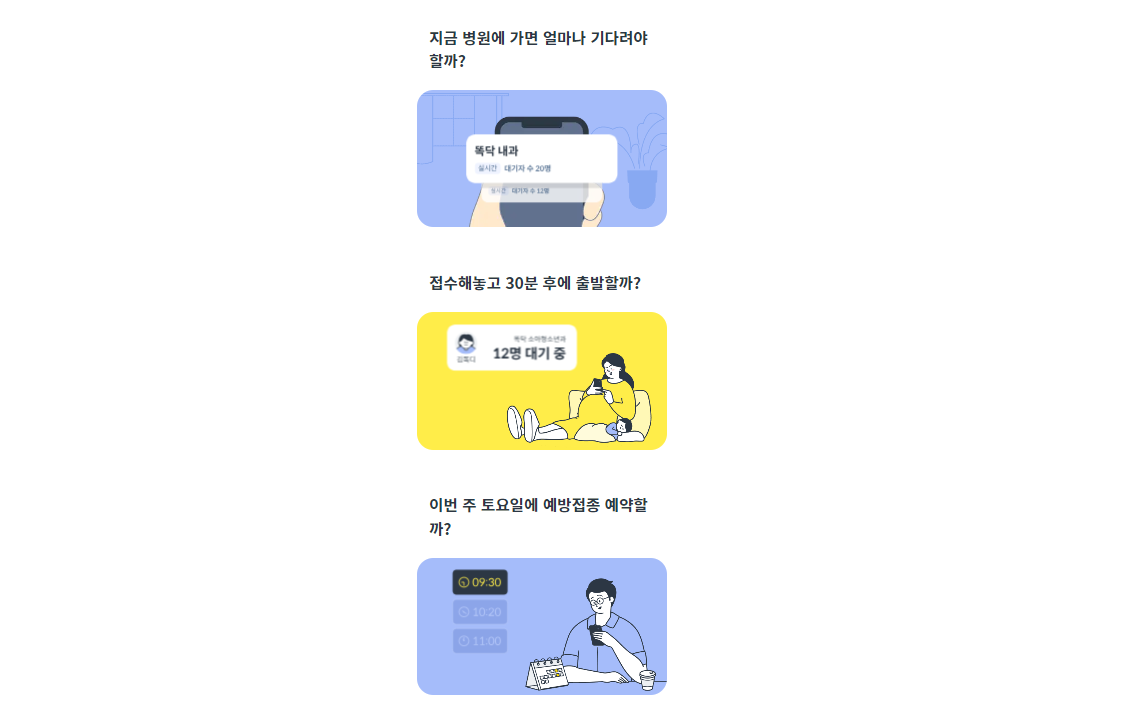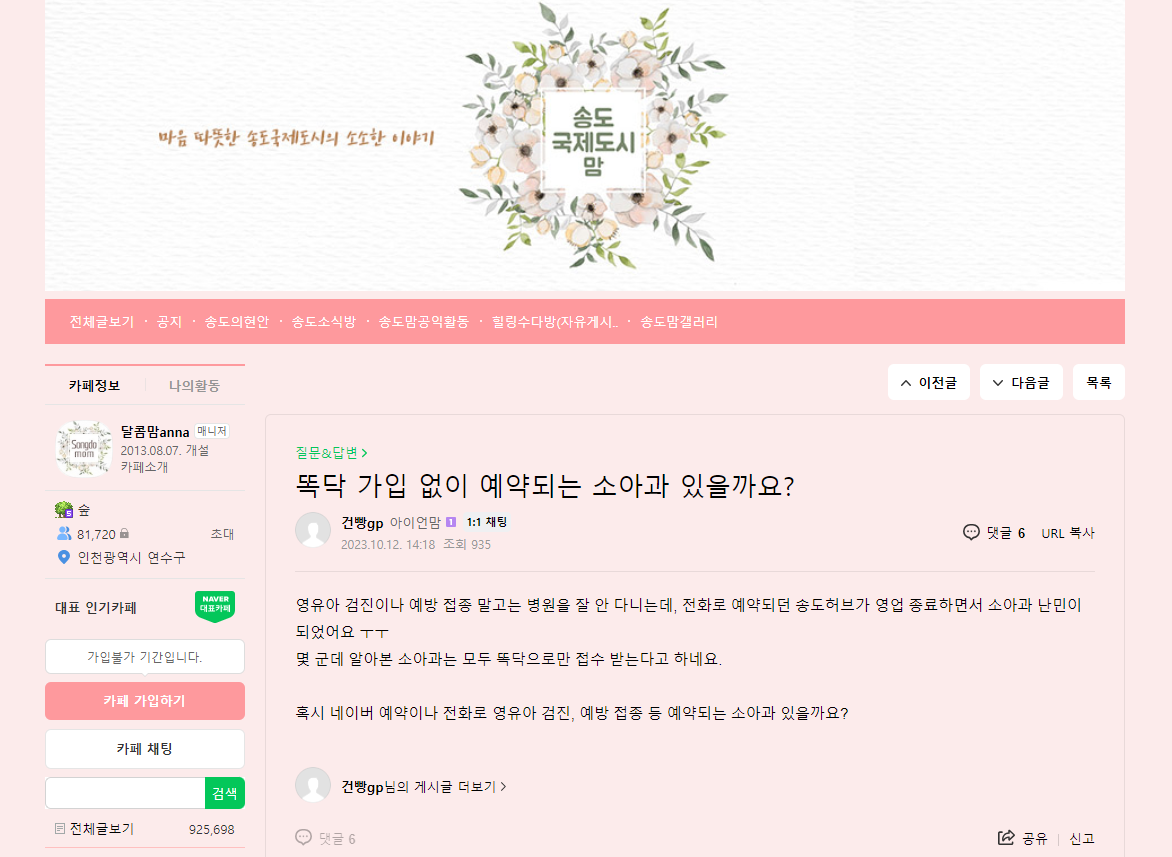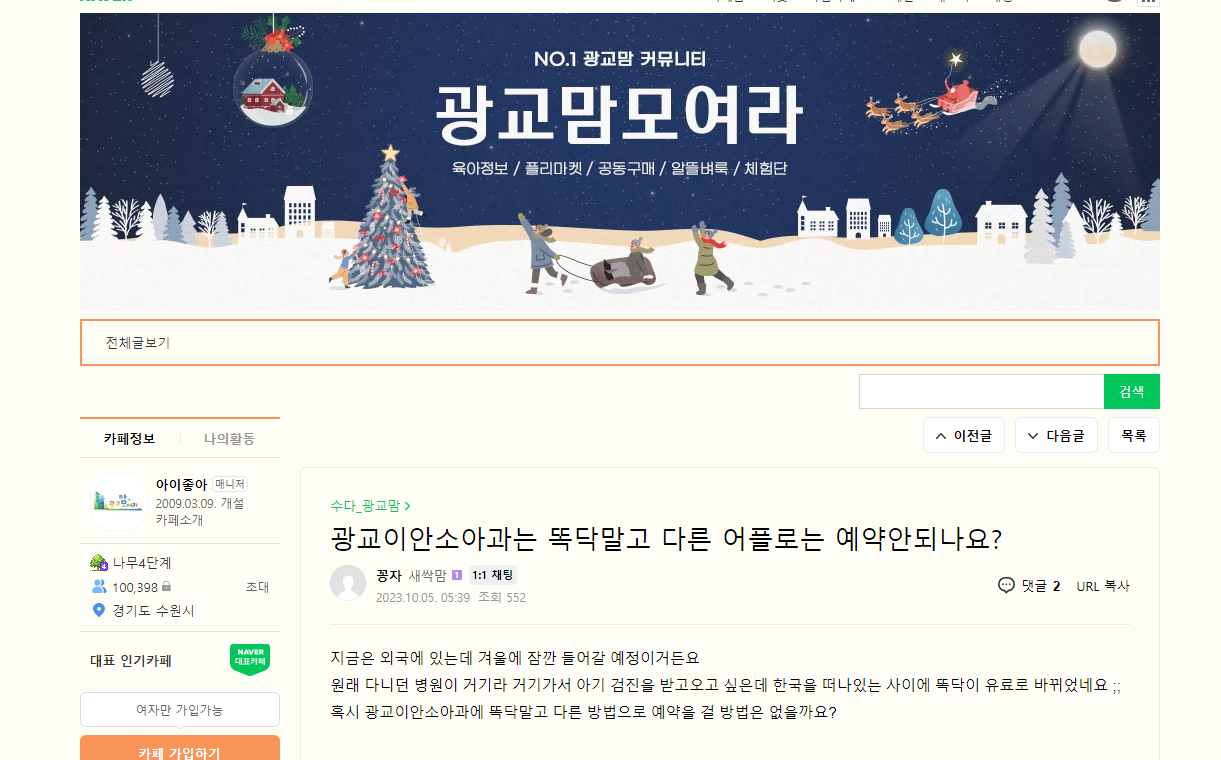Ddocdoc is an application that allows patients to make appointments and get waitlisted for medical treatment without visiting the hospital in person. While it was previously free, starting from September 2023, it transitioned into a paid membership service. By subscribing to a monthly membership costing 1,100 won, users can gain access to these services. As the user base of Ddocdoc expanded, so did the network of hospitals connected to the platform. However, there are growing concerns that this shift discriminates against digitally disadvantaged individuals or those who cannot afford to use Ddocdoc, a sentiment I concur with.
 |
| ▲ Docdoc Service Guide (Photo from Ddocdoc Website) |
The Ddocdoc application was first launched in April 2017, as a free service covering appointments and waitlists across more than 600 hospitals. However, with a significant surge in caregivers seeking Ddocdoc’s services, operating costs escalated. Consequently, starting from September 2023, Ddocdoc shifted to a paid membership model. This did not deter medical providers. As of December 2023, more than 4,000 hospitals were signed up to provide appointments and waitlist services through the Ddocdoc application. This was particularly prominent in new cities where the adoption rate of Ddocdoc remains notably high. In a new city, where numerous pediatricians operate, families were frequently left asking ‘Is there a pediatrician available for treatment without Ddocdoc?’ on local forums such as the Mom Cafe. As both the user base of Ddocdoc and the network of affiliated hospitals continue to grow, the competition for medical appointments has become more intense.
 |
| ▲ A user in Songdo, a new town, expressed inconvenience. (Photo from Mom Cafe Posts) |
The recent transition of Ddocdoc to a paid membership service also raised concerns about potential discrimination. There are valid concerns about potential exclusion for individuals with limited digital access, including underprivileged families, overseas migrants, and elderly households. In addition, individuals with poor digital literacy may be unaware of services like Ddocdoc or struggle to utilize them effectively. Despite these concerns, the proliferation of the app continues. Eight hospitals announced that they would only accept medical appointments through Ddocdoc. The Ministry of Health and Welfare has issued administrative guidance, recognizing that this practice could be considered a 'refusal' under the medical law. As of December 2023, 11% (about 4,000) of all clinic-level medical institutions, particularly 21.9% of pediatrics facilities, were affiliated with Ddocdoc.
 |
| ▲ A user in Gwanggyo, a new town, expressed inconvenience. (Photo from Mom Cafe Posts) |
The patient’s right to receive treatment for any reason should be guaranteed without discrimination, especially in the realm of public healthcare. In particular, concerns have been raised about the monopolization of medical appointment scheduling and treatment reception by a private company like Ddocdoc, rather than by government agencies such as the Ministry of Health and Welfare or other local authorities. Since Ddocdoc is currently monopolized, consumers may find themselves with limited options for this service even as costs rise. In response to this controversy, the CEO of Vivros, the corporation behind Ddocdoc, was asked to participate in a parliamentary audit in October 2023 and address questions on these matters.
Australia operates a government-certified public health care platform within a state-owned enterprise. In the UK, healthcare services are accessible through an application approved by the National Health Service (similar to Korea's Ministry of Health and Welfare). Considering scenarios where physical access to hospitals is limited, such as for dual-income families, it is evident that an application for medical appointment scheduling and waiting is necessary. However, continuing to rely solely on private companies, as it stands now, poses significant risks to the well-being of the public. Taking Australia or the UK as an example, I firmly believe that free medical scheduling and waitlist applications should be transitioned to the responsibility of public institutions, such as the Ministry of Health and Welfare, or local health centers.
While socially underprivileged groups bear the brunt of Ddocdoc’s emergence and commercialization, it is essential to recognize that individuals with limited physical access to medical services have found value in this application. However, fundamental healthcare should be accessible to all. As a private company, Ddocdoc’s profit from monopolization underscores the need for swift government intervention to ensure equal access to all, in our healthcare system.
박지윤 dankookherald@gmail.com






